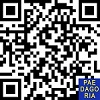DEVELOPMENT OF PROBLEM BASED INVESTIGATION MODEL LEARNING TOOLS BASED ON LOCAL WISDOM TO IMPROVE STUDENTS' CRITICAL THINKING SKILLS
Abstract
Abstrak: Tujuan dari penelitian ini adalah mengembangkan perangkat pembelajaran model Problem Based Investigation berbasis kearifan lokal Sasak Lombok dan implementasinya dalam pembelajaran. Metode penelitian merupakan penelitian pengembangan yang menghasilkan produk perangkat pembelajaran. Tahapan penelitian dibagi menjadi 3 bagian, yaitu: mengembangkan produk awal, menvalidasi produk, dan uji produk. Produk awal yang dihasilkan berupa model pembelajaran dan perangkat pembelajaran Problem Based Investigation yang dilakukan melalui tahapan perancangan, pengembangan dan evaluasi. Validasi produk yang dilakukan oleh ahli pendidikan, kurikulum, media pembelajaran serta masukan dari teman sejawat dan guru. Uji produk secara terbatas dan lapangan di SD Muhammadiyah Mataram. Hasil penelitian bahwa pengembangan perangkat pembelajaran berbasis kearifan lokal berada pada kategori valid dan dapat meningkatkan kemampuan berpikir kritis pada materi bangun datar. Hasil validitas dari penilaian tiga validator dengan persentase sebesar 90% dengan kriteria sangat valid dan hasil ujicoba bahwa perangkat pembelajaran berbasis kearifan lokal berada pada kategori valid, praktis, dan efektif.
Abstract: The purpose of this study is to develop a learning tool for the Problem Based Investigation model based on local wisdom of Sasak Lombok and its implementation in learning. The research method is a development research that produces learning device products. The research stages are divided into 3 parts, namely: developing the initial product, validating the product, and testing the product. The initial product produced is in the form of a learning model and a Problem Based Investigation learning tool which is carried out through the stages of design, development and evaluation. Product validation carried out by experts in education, curriculum, learning media and input from peers and teachers. Product tests are limited and field at SD Muhammadiyah Mataram. The results of the study show that the development of learning tools based on local wisdom is in the valid category and can improve critical thinking skills in flat building materials. The validity results of the assessment of three validators with a percentage of 90% with very valid criteria and the results of the trial that learning tools based on local wisdom are in the category of valid, practical, and effective.
Keywords
Full Text:
PDFReferences
Anggo, M. (2011a). The involvement of metacognition in mathematical problem solving. Edumatica: Journal of Mathematics Education. 1(1), 25-32
Borg, W., & Gall, M. (1983). Educational Research: An Introduction (4 th ed). White Plains, NY: Longman Inc.
Fitriani, E., & Mahsup, M. (2018). The Effect of Jigsaw-type Cooperative Learning to Improve Comprehension. Justek: Journal of Science and Technology. https://doi.org/10.31764/justek.v1i2.3541
Fatimah, S., Nur, F., Suharti, S., Sulasteri, S., & Angriani, A. D. (2021). Understanding of mathematical concepts using the Problem Based Learning and Group Investigation learning models. Delta: Scientific Journal of Mathematics Education, 9(2), 191. https://doi.org/10.31941/delta.v9i2.1319
Fariana, M. (2017). Implementation of Problem Based Learning Model to Improve Students' Understanding of Concepts and Activities. Journal Of Medives, 1(1), 25-33
Hastuti, I. D., Nusantara, T., & Susanto, H. (2016). Constructive Metacognitive Activity Shift in Mathematical Problem Solving. Educational Research and Reviews, 11(8), 656–667. https://doi.org/10.5897/ERR2016.2731
Kabunggul, J., Pramita, D., Mandailina, V., Abdillah, A., Mahsup, M., & Sirajuddin, S. (2020). Increasing student motivation and learning outcomes through the application of the Team Game Tournament learning model assisted by Android media. Warrior: Journal of Character Education.
Kholis, N. (1970). Islamic Education Paradigm in the 2003 National Education System Law. Journal of Education. https://doi.org/10.24090/jk.v2i1.542
Mahsup, M., Ibrahim, I., Muhardini, S., Nurjannah, N., & Fitriani, E. (2020). Improving Student Learning Outcomes Through the Peer Tutor Learning Model. Journal of Education: Journal of Research Results and Literature Review in the Field of Education, Teaching and Learning, 6(3), 609. https://doi.org/10.33394/jk.v6i3.2673
Medyasari, L. T., Muhtarom, M., & Sugiyanti, S. (2017). The effectiveness of the group investigation learning model assisted by question cards on learning achievement is reviewed from the learning motivation on algebraic function derivative material. AXIOM. https://doi.org/10.26877/aks.v8i1.1511
Mendrofa, R. N. (2018). The Effect of Group Investigation Type Cooperative Learning Model on Concept Understanding and Mathematical Problem Solving Ability of Grade VII Students of SMPS Pembda 2 GUNUNGSITOLI. Journal of Education and Teaching Review. https://doi.org/10.31004/jrpp.v1i1.637
Nieveen, N. (1999). Prototyping to Reach Product Quality. Netherlands: Kluwer Academic Publisher.
Plomp, T., & Nieveen, N. (2007). An Introduction to Educational Design Research.
Pramesti, P. D., Dibia, I. K., & Ujianti, P. R. (2021). Power Point-Based Interactive Online Learning Media with Hyperlink Function. Journal of Pedagogy and Learning, 4(2), 258. https://doi.org/10.23887/jp2.v4i2.36524
Rahmatin, N., Pramita, D., Sirajuddin, S., & Mahsup, M. (2019). Development of a Learning Module to Build a Space with the Creative Problem Solving (CPS) Method in Grade VIII Junior High School Students. JTAM | Journal of Theory and Application of Mathematics, 3(1), 27. https://doi.org/10.31764/jtam.v3i1.760
Roviati, E., & Widodo, A. (2019). Contribution of Scientific Argumentation in the Development of Critical Thinking Skills. Titian Ilmu: Multi Sciences Scientific Journal, 11(2), 56–66. https://doi.org/10.30599/jti.v11i2.454
Septiara, D. P., & Saino, S. (2022). Development of web-based e-modules in creative products and entrepreneurship class XI BDP I at SMKN 1 Surabaya. Journal of Tambusai Education, 6, 10689–10699.
Siregar, R. M. R. (2019). The Influence of Group Investigation Type Cooperative Learning Model on Mathematical Concept Understanding. Journal of Serunai Mathematics. https://doi.org/10.37755/jsm.v11i1.110
Syahputri, I., & Dafit, F. (2021). Development of Reading E-Module for Grade 3 Students of SDN 029 Pekanbaru. QALAMUNA: Journal of Education, Social, and Religion, 13(2), 671–686. https://doi.org/10.37680/qalamuna.v13i2.1081
Supiyati, S., Hanum, F., & Jailani. (2019). Ethnomathematics in Sasaknese Architecture. ournal on Mathematics Education, 10(1), 47-58.
Supiyati, S., Hanum, F., & Jailani. (2019). Ethnomathematics in Sasaknese Architecture. ournal on Mathematics Education, 10(1), 47-58.
Trisnawati, N. F., & Sundari, S. (2020). The Effectiveness of the Problem Based Learning Model and the Group Investigation Model in Improving the Anti-Corruption Character. Mosharafa: Journal of Mathematics Education, 9(2), 203–214. https://doi.org/10.31980/mosharafa.v9i2.637
Vidianti, A., & Qonita, T. (2022). Development of e-Module Teaching Materials Using Sigil Applications in Biology Subject Class XI High School. Betrik Scientific Journal, 13 No.1(01), 41–49.
Winatha, K. R., Suharsono, N., & Agustini, K. (2018). Development of Project-Based Interactive E-modules for Digital Simulation Subjects. Journal of Technology and Vocational Education, 15(2), 188–199. https://doi.org/10.23887/jptk-undiksha.v15i2.14021
DOI: https://doi.org/10.31764/paedagoria.v15i3.22783
Refbacks
- There are currently no refbacks.
Copyright (c) 2024 Mahsup

This work is licensed under a Creative Commons Attribution-ShareAlike 4.0 International License.
Paedagoria : Jurnal Kajian, Penelitian dan Pengembangan Kependidikan
Fakultas Keguruan & Ilmu Pendidikan | Universitas Muhammadiyah Mataram.
_______________________________________________
 | Paedagoria : Jurnal Kajian, Penelitian dan Pengembangan Kependidikan |
______________________________________________
CURRENT INDEXING:
EDITORIAL OFFICE:


















